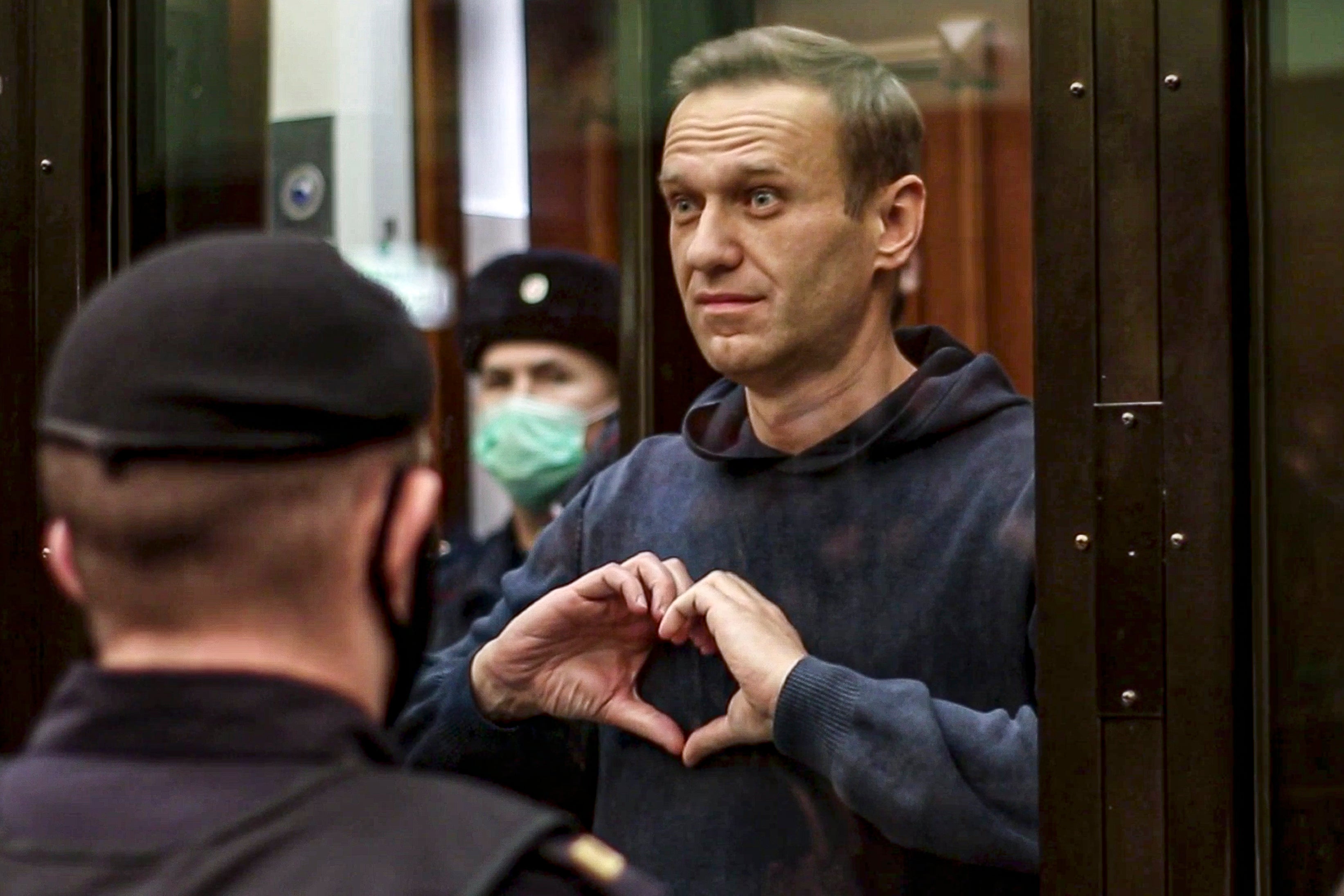Russia rejects Western criticism over Navalny's prison term
Russian authorities have shrugged off protests against the jailing of top Kremlin foe Alexei Navalny and rejected Western criticism as “hysterics” as activists reported more than 1,400 new arrests in the ongoing crackdown on protests

Your support helps us to tell the story
From reproductive rights to climate change to Big Tech, The Independent is on the ground when the story is developing. Whether it's investigating the financials of Elon Musk's pro-Trump PAC or producing our latest documentary, 'The A Word', which shines a light on the American women fighting for reproductive rights, we know how important it is to parse out the facts from the messaging.
At such a critical moment in US history, we need reporters on the ground. Your donation allows us to keep sending journalists to speak to both sides of the story.
The Independent is trusted by Americans across the entire political spectrum. And unlike many other quality news outlets, we choose not to lock Americans out of our reporting and analysis with paywalls. We believe quality journalism should be available to everyone, paid for by those who can afford it.
Your support makes all the difference.Russian authorities on Wednesday shrugged off the massive rallies against the jailing of top Kremlin foe Alexei Navalny and rejected Western criticism as “hysterics” as activists reported more than 1,400 new arrests in the crackdown on protesters.
A Moscow court on Tuesday ordered Navalny to prison for two years and eight months, finding that he violated the terms of his probation while recuperating in Germany from a nerve-agent poisoning. The ruling immediately ignited new protests in Moscow and St. Petersburg that followed massive rallies over the past two weekends.
Speaking in court, Navalny denounced the accusations against him as fabricated and driven by President Vladimir Putin’s “fear and hatred,” saying that the Russian leader will go down in history as a “poisoner.”
Asked to comment on Navalny's speech, which was shared widely on Russian social media platforms, Kremlin spokesman Dmitry Peskov responded that it's not up to him to determine Putin's place in history. Like Putin, Peskov avoids mentioning Navalny by name.
Navalny, a 44-year-old anti-corruption campaigner who is Putin's most determined political foe, was arrested Jan. 17 upon returning from his five-month convalescence in Germany from the poisoning which he has blamed on the Kremlin. Russian authorities deny any involvement and claim they have no proof that he was poisoned despite tests by several European labs.
The prison sentence for Navalny and Russia's tough police response to peaceful protests drew harsh criticism from the United States and European Union nations.
U.S. Secretary of State Antony Blinken urged Moscow to immediately free Navalny and those who were detained during protests.
“Even as we work with Russia to advance U.S. interests, we will coordinate closely with our allies and partners to hold Russia accountable for failing to uphold the rights of its citizens,” he said.
French President Emmanuel Macron called Navalny’s conviction “unacceptable” and called for his immediate release.
“A political disagreement is never a crime,” Macron. "The respect of human rights, like that of democratic freedom, is not negotiable.”
Chancellor Angela Merkel’s spokesman Steffen Seibert on Wednesday reiterated the German leader’s call for Navalny's immediate release and an end to the police crackdown against anti-government protesters.
Seibert told reporters that the Moscow court’s ruling “was far from the principles of rule of law,” noting that it was based on Navalny's earlier conviction, which the European Court of Human Rights had deemed “arbitrary” and a breach of Navalny’s rights to a fair trial.
“The German government condemns this systematic use of violence against peaceful protesters,” he said.
Russian Foreign Minister Sergey Lavrov on Wednesday rejected the Western demands as “arrogant and improper,” saying that Moscow will not be moved by Western “hysterics.” He defended the Russian police response to protests as much milder than some police action against demonstrators in Western countries.
More than 1,400 people were detained, about 1,170 in Moscow and more than 250 in St. Petersburg, when demonstrators took to the streets to protest the court's order Tuesday to send Navalny to prison, according to the independent OVD-INFO group that documents arrests.
Police brutally beat many peaceful protesters and used tasers against some in a show of force apparently intended to intimidate the opposition.
__
Angela Charlton in Paris and Frank Jordans in Berlin contributed to this report.